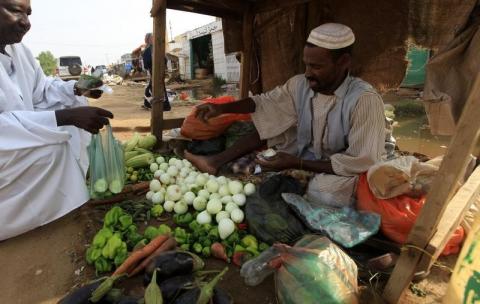Error message
- Notice: Trying to access array offset on value of type int in element_children() (line 6595 of /home3/alkhabar/public_html/includes/common.inc).
- Notice: Trying to access array offset on value of type int in element_children() (line 6595 of /home3/alkhabar/public_html/includes/common.inc).
- Notice: Trying to access array offset on value of type int in element_children() (line 6595 of /home3/alkhabar/public_html/includes/common.inc).
- Notice: Trying to access array offset on value of type int in element_children() (line 6595 of /home3/alkhabar/public_html/includes/common.inc).
- Notice: Trying to access array offset on value of type int in element_children() (line 6595 of /home3/alkhabar/public_html/includes/common.inc).
- Notice: Trying to access array offset on value of type int in element_children() (line 6595 of /home3/alkhabar/public_html/includes/common.inc).
- Notice: Trying to access array offset on value of type int in element_children() (line 6595 of /home3/alkhabar/public_html/includes/common.inc).
- Notice: Trying to access array offset on value of type int in element_children() (line 6595 of /home3/alkhabar/public_html/includes/common.inc).
- Notice: Trying to access array offset on value of type int in element_children() (line 6595 of /home3/alkhabar/public_html/includes/common.inc).
- Notice: Trying to access array offset on value of type int in element_children() (line 6595 of /home3/alkhabar/public_html/includes/common.inc).
- Notice: Trying to access array offset on value of type int in element_children() (line 6595 of /home3/alkhabar/public_html/includes/common.inc).
- Notice: Trying to access array offset on value of type int in element_children() (line 6595 of /home3/alkhabar/public_html/includes/common.inc).
- Notice: Trying to access array offset on value of type int in element_children() (line 6595 of /home3/alkhabar/public_html/includes/common.inc).
- Notice: Trying to access array offset on value of type int in element_children() (line 6595 of /home3/alkhabar/public_html/includes/common.inc).
- Notice: Trying to access array offset on value of type int in element_children() (line 6595 of /home3/alkhabar/public_html/includes/common.inc).
- Notice: Trying to access array offset on value of type int in element_children() (line 6595 of /home3/alkhabar/public_html/includes/common.inc).
- Notice: Trying to access array offset on value of type int in element_children() (line 6595 of /home3/alkhabar/public_html/includes/common.inc).
- Notice: Trying to access array offset on value of type int in element_children() (line 6595 of /home3/alkhabar/public_html/includes/common.inc).
- Notice: Trying to access array offset on value of type int in element_children() (line 6595 of /home3/alkhabar/public_html/includes/common.inc).
- Notice: Trying to access array offset on value of type int in element_children() (line 6595 of /home3/alkhabar/public_html/includes/common.inc).
- Notice: Trying to access array offset on value of type int in element_children() (line 6595 of /home3/alkhabar/public_html/includes/common.inc).
- Notice: Trying to access array offset on value of type int in element_children() (line 6595 of /home3/alkhabar/public_html/includes/common.inc).
- Notice: Trying to access array offset on value of type int in element_children() (line 6595 of /home3/alkhabar/public_html/includes/common.inc).
- Notice: Trying to access array offset on value of type int in element_children() (line 6595 of /home3/alkhabar/public_html/includes/common.inc).
- Notice: Trying to access array offset on value of type int in element_children() (line 6595 of /home3/alkhabar/public_html/includes/common.inc).
- Notice: Trying to access array offset on value of type int in element_children() (line 6595 of /home3/alkhabar/public_html/includes/common.inc).
- Notice: Trying to access array offset on value of type int in element_children() (line 6595 of /home3/alkhabar/public_html/includes/common.inc).
- Notice: Trying to access array offset on value of type int in element_children() (line 6595 of /home3/alkhabar/public_html/includes/common.inc).
- Notice: Trying to access array offset on value of type int in element_children() (line 6595 of /home3/alkhabar/public_html/includes/common.inc).
- Notice: Trying to access array offset on value of type int in element_children() (line 6595 of /home3/alkhabar/public_html/includes/common.inc).
- Notice: Trying to access array offset on value of type int in element_children() (line 6595 of /home3/alkhabar/public_html/includes/common.inc).
- Notice: Trying to access array offset on value of type int in element_children() (line 6595 of /home3/alkhabar/public_html/includes/common.inc).
- Notice: Trying to access array offset on value of type int in element_children() (line 6595 of /home3/alkhabar/public_html/includes/common.inc).
- Notice: Trying to access array offset on value of type int in element_children() (line 6595 of /home3/alkhabar/public_html/includes/common.inc).
- Notice: Trying to access array offset on value of type int in element_children() (line 6595 of /home3/alkhabar/public_html/includes/common.inc).
- Notice: Trying to access array offset on value of type int in element_children() (line 6595 of /home3/alkhabar/public_html/includes/common.inc).
- Notice: Trying to access array offset on value of type int in element_children() (line 6595 of /home3/alkhabar/public_html/includes/common.inc).
- Notice: Trying to access array offset on value of type int in element_children() (line 6595 of /home3/alkhabar/public_html/includes/common.inc).
- Notice: Trying to access array offset on value of type int in element_children() (line 6595 of /home3/alkhabar/public_html/includes/common.inc).
- Notice: Trying to access array offset on value of type int in element_children() (line 6595 of /home3/alkhabar/public_html/includes/common.inc).
- Notice: Trying to access array offset on value of type int in element_children() (line 6595 of /home3/alkhabar/public_html/includes/common.inc).
- Deprecated function: implode(): Passing glue string after array is deprecated. Swap the parameters in drupal_get_feeds() (line 394 of /home3/alkhabar/public_html/includes/common.inc).
- Deprecated function: The each() function is deprecated. This message will be suppressed on further calls in menu_set_active_trail() (line 2405 of /home3/alkhabar/public_html/includes/menu.inc).
Advertisement
You are here
Sudan's inflation falls to 24 pct in January: statistics agency
CAIRO (Reuters) - Sudan's inflation rate declined in January to 24 percent from 25.7 percent in December, due in part to falling food prices, the Central Statistics Office said on Tuesday.
Prices soared in Sudan after South Sudan seceded in 2011, taking with it three-quarters of the country's oil output, the main source of the foreign currency used to support the Sudanese pound and to pay for food and other imports.
Fuel subsidy cuts introduced last year also pushed up inflation but their effects have since begun to ease.
But, with the exception of an uptick in December to 25.7 percent from November's rate of 25.6, Sudan's inflation has been easing since the summer, when it was in the mid-forties.
As an oil importer, Sudan is benefiting from the more than 50 percent slump in global oil prices since June.
Dozens were killed and hundreds wounded in 2013 during protests over rising prices, austerity measures and subsidy cuts.



















Add new comment